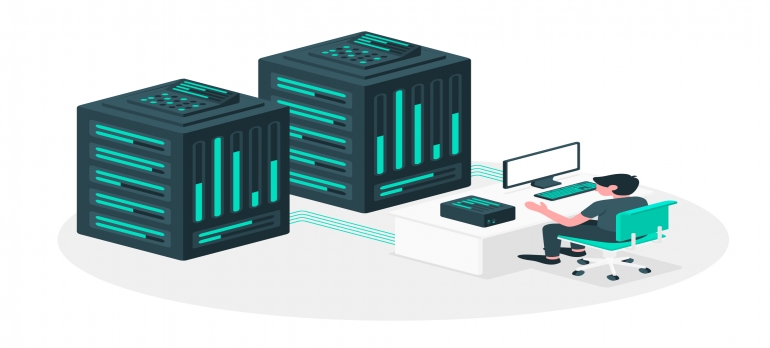
What is On-Premise PBX Solution
Premises-based solutions in the context of Private Branch Exchange (PBX) refer to traditional telephony systems that are installed and operated on-site within an organization's premises or physical location. It involves the deployment of physical PBX hardware, including servers, switches, and telephony equipment, within the organization's facility.
With premises-based PBX solutions, the organization has complete ownership and control over the telephony system. Here are some key aspects of premises-based PBX solutions:
- Hardware and Infrastructure: The organization is responsible for procuring, and maintaining the necessary hardware infrastructure, including servers, PBX equipment, telephones, and network connectivity. The system is physically located on-site.These are approaches or strategies for implementing PBX systems where the entire infrastructure is located and managed within the organization's own premises or physical location. This means that the organization has control and ownership over the PBX system.
- System reliability and uptime management: With self-hosted equipment and infrastructure, you have the ability to manage and schedule system inspections and maintenance at your convenience. The practice of ensuring the continuous and dependable operation of a system, minimizing downtime and maximizing its availability. It involves various strategies and measures implemented to maintain the system's reliability, performance, and uninterrupted functionality.
- Capital Investment: Implementing a premises-based PBX solution typically involves upfront capital investment. The organization needs to purchase the necessary hardware, software licenses, and equipment. It may also incur additional costs for maintenance and system upgrades over time.PBX solution typically involves upfront capital investment, and it is important to consider the associated costs throughout the lifecycle of the system.
- Maintenance and Support: Organizations are responsible for the ongoing maintenance of Hardware, support of the PBX system will be provided through remote or on-site(in emergency cases). This includes troubleshooting issues, applying security patches, and ensuring system reliability.The organization may need to allocate resources for regular maintenance, updates, and patches to keep the PBX system running smoothly and securely. Depending on the complexity of the system and the organization's requirements, these costs can vary. It is important to consider the need for technical expertise or outsourcing support, which may entail additional expenses.
- Scalability and Flexibility: Premises-based PBX solutions can be scalable, allowing organizations to add more lines, extensions, or features as their communication needs grow. However, scaling up may require additional hardware investment and configuration changes.As an organization grows, it may require additional phone lines and extensions to accommodate a larger workforce or increased communication demands. Premises-based PBX solutions can be scaled up by adding more hardware components, such as telephony cards or modules, to support the desired number of lines and extensions. This allows organizations to easily scale their communication infrastructure to meet their evolving requirements.
- Localized Control: Premises-based solutions provide localized control over call routing, call management features, and other telephony settings. This can be advantageous for organizations that require strict control over their telephony infrastructure.Call Routing Control organizations have direct control over call routing. They can define and customize call routing rules and configurations according to their specific requirements. This allows them to efficiently manage incoming and outgoing calls, ensure proper call distribution, and implement advanced call routing strategies, such as time-based routing or skill-based routing. Call Management Features organizations the ability to leverage a wide range of call management features. They can tailor these features to suit their specific needs and preferences. Compliance and Security The level of control ensures that organizations can meet industry-specific regulations and maintain the security and confidentiality of their communications.
- Physical Limitations: Premises-based PBX solutions may have physical limitations in terms of capacity, scalability, and geographical reach. Expansion or system upgrades may require additional hardware and infrastructure investments.